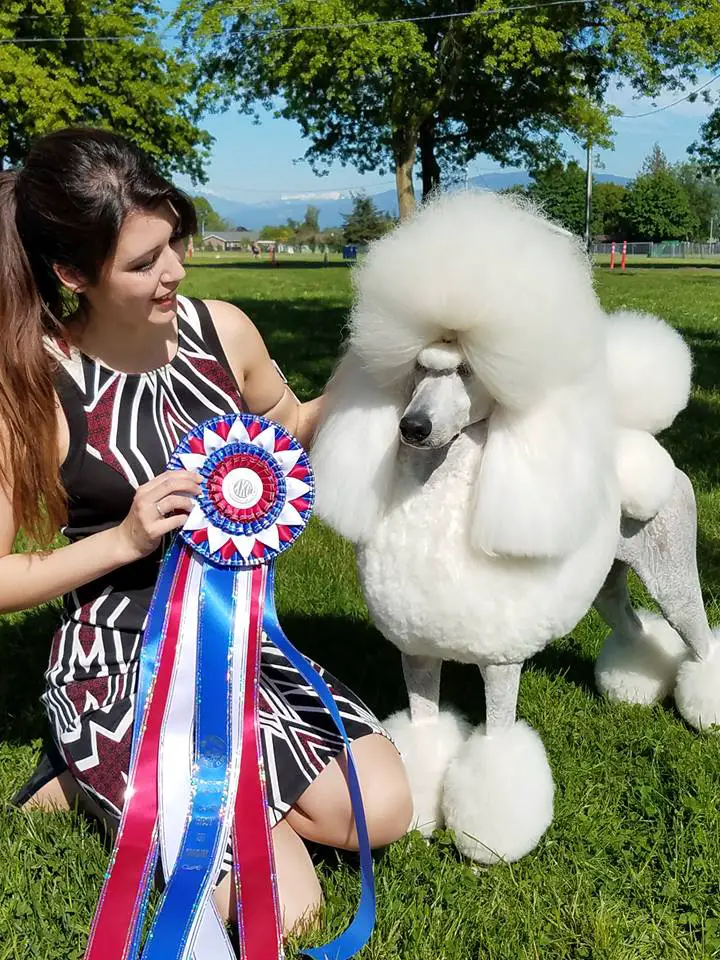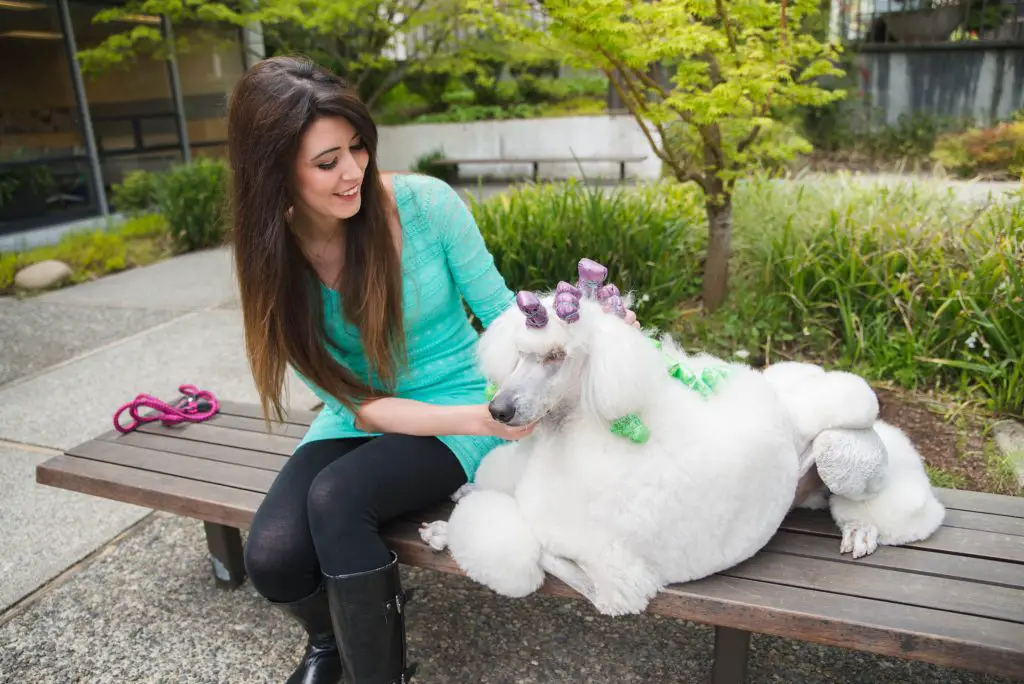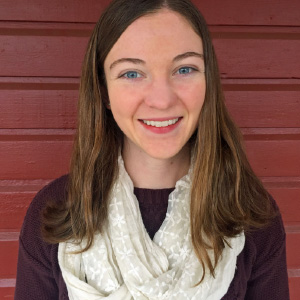Most college students’ familiarity with professional dogs ends with Animal Planet’s annual Puppy Bowl, a well-loved show for children and football haters alike. Because who wouldn’t want to drown out the Super Bowl madness with a slew of cute puppies, right?
Fortunately for the future of canine intelligence, however, the Puppy Bowl dogs are not the epitome of professionally trained dogs. Instead, dog breeding, training, grooming and handling are each constituent parts of the profession of dog showing which, for many people, begins as a hobby but quickly becomes a lifestyle. At age twenty-one, Seattle Pacific University senior Lindsay Gorder is finding success in the world of dog shows and is looking for ways to balance her one true love with another equally demanding passion—corporate law.
Gorder is a senior at Seattle Pacific University in Seattle, Washington. She is majoring in Political Science, hoping to progress onto law school following graduation, and she spends her weekends and summers at dog shows around the United States. I had the chance to talk with Lindsay on the phone last week as she settled into her hotel room after a long day at a dog show, and she explained her interest in poodles, her lifelong interest in law and how she deals with the difficult balance between a time-consuming hobby and a difficult major.
Dakota Buhler: Could you start out with a quick crash course in the world of dog handling?
Lindsay Gorder: Yeah—it’s a competition where dogs are judged based on their conformation, or how they’re built. Each breed has a parent club that has come up with a standard for what the perfect dog would look like for each breed. As for my job, I’m hired to exhibit dogs to judges and highlight their best attributes. A lot of professional handlers are trained to handle many breeds, to make the dog look its best. The goal, ultimately, is to show the judge that we have the best dog. So in a show, a handler is presenting the dog, and running or walking it depending on the breed, in order to show it to the best of its ability and to get as close as possible to the written standard.
DB: So what would an average show day look like for you?
LG: For me, I have one of the most time-consuming breeds—the Standard Poodle. The day before the show, I usually spend about seven to eight hours grooming each dog. The day of the show, I wake up and take the dogs out, because we stay in a hotel and the dogs always stay with me. So I take them out, walk them, feed them and get ready for the day. Then it goes to grooming—endless hours of bathing and brushing. We use hairspray to get the hair ready for the judge for each show; it’s hours of grooming before we even go into the ring. I’m currently campaigning a Special, so it’s a little different for me right now because we have different rounds that we compete in. If he wins the breed, he goes on to the group, and if he wins that, he goes on to Best in Show, so it’s really just different levels that go on throughout the whole dog show world.

DB: You first started handling dogs at age seven, and your first show was at age eight. What initially drew you to the world of dog handling?
LG: I started showing in 4-H, which is a youth organization that deals with a lot more than handling. You learn leadership skills, responsibility and other things like that, but I took to the handling part really quickly. I won state my first year competing there, so I was eight years old at that point, and that’s when we learned that I really enjoyed the showmanship part, which is a handling competition. That stemmed to the AKC, the American Kennel Club, which is where I compete now.
I started showing in the AKC when I was thirteen, and then at fifteen I was picked up by a woman who breeds Standard Poodles—that’s always been my breed—and she started sponsoring me to show. I still work for her, and I show her dog. He’s currently the number one Standard Poodle, so I chauffeur her and I fly around the country. So it’s really just snowballed, and the involvement continues to grow. It’s the most addicting thing I’ve ever done.
DB: When did you decide to focus on poodles, especially? What was it about poodles that made you love them?
LG: I always loved how regal poodles looked. There is a man named Tim Brazier who is world-renowned. He is the most famous poodle handler in the world; everyone in the dog handling community knows who he is, and I grew up watching him. He was right in my backyard; he lived only twenty minutes away from me, and I got to go see some of the shows he was at locally. From there, I just fell in love with the dogs and knew I wanted one. The woman who got me started on dogs—I actually went to her daycare, so it’s a small world; I never knew that something as small as that would have stemmed into something so big—she actually got me my first dog. I kept it at her house, that way I could come and train and work with it, and my parents weren’t pet-oriented at all, but this gave me the chance to have a dog of my own. I fell in love and never looked back.
DB: What are some of the highlights of your shows, whether it’s something you look forward to at every show or specific memories from some of your favorite shows?
LG: Probably the national specialty this past September, when we won Top 20 with another breed of dog that I show with my dog-mom. That’s where I really started to take off with working to try to be a professional handler. I’m not there yet—it takes many, many years to get there, but I was in the ring with so many people that I’ve respected for so many years, and to go and do it with a dog that I’ve raised and trained alongside the woman who got me started with it all, to be able to give her that win, was one of the coolest things.
I’ve gotten Best in Show multiple times with my poodles, and that was all thanks to her. That was probably one of my biggest wins, because it was more of a give-back-to-her moment. On a personal level, the Westminster dog show is the most prestigious dog show in the United States, and my dogs have been continuously competitive there. I won second place two years ago to the number one dog, so it’s really neat to be able to be competitive at this level at my age
DB: Speaking of being competitive at a young age, you are going into your senior year at Seattle Pacific, majoring in Political Science and looking toward law school. What led you to choose this particular major, and what are some of your favorite parts about it?
LG: I’ve always wanted to be an attorney, from a very, very young age. Something about it has always inspired me. Throughout school I have always loved poly-sci classes—I love politics, even though I know most people don’t. I’ve always thought it was interesting to see the differences between people’s ways of thinking, especially approaching public issues and how the government runs. It’s just something I’ve always been really interested in—especially constitutional law, which most people think is the most boring one, but I love it.
DB: What are you hoping to accomplish in the field of law in the future?
LG: I want to be able to practice law; I want to be a corporate attorney of some sort. I haven’t narrowed down the field, but I also want to be able to continue handling and competing in dog shows. I want to be able to balance that and keep that going. I’m really passionate about both law and dog handling, and I want to be able to do both, which is a lot of time management.
DB: That does sound like a lot of time management. How do you, personally, balance a time-consuming hobby with a difficult major, and do you have any tips for other students who are trying to find that balance as well?
LG: The biggest thing is just prioritizing. I know it’s so tempting, after you get done with a test, to just go hit Netflix or go watch a movie, and for me it’s always been a matter of knowing that even if I just got out of a test, if I have a big dog show coming up, I need to use my time to get ahead on the reading or get ahead with the lecture notes. I miss a lot of lectures, so to stay on top of it means that I need to be self-teaching, and then when I do come back to lectures, I can use that time for discussion and to make sure I understand the concepts. The biggest thing is really just prioritizing, because if I blow off a reading assignment just to go and hang out with friends, it might cost me a test score, and I have always put grades and dog shows ahead of social life. I know it’s important to be balanced, but as far as that goes, I would rather go to a dog show because my grades are okay than have to stay home because I decided to slack off.
DB: One final question—and this is kind of a fun one—what is one thing that someone who is attending a dog show for the first time should look for?
LG: If someone went to a dog show, I would strongly urge them to go behind the scenes—not just to the rings, but to the grooming areas. Watch how well the dogs are taken care of and pampered and brushed. Really see how hard we work in the sport of purebred dogs. A lot of it has been marketed, by PETA and other organizations, to be like a supermodel fashion show where the dogs are being abused, but that’s really not the case. All of our dogs probably have better lives than we do; we feed them better and pamper them better. That’s what I would recommend. The dogs really love being there. This isn’t for us, this is a sport. The dogs love it and we love it; it’s a companion event.

















